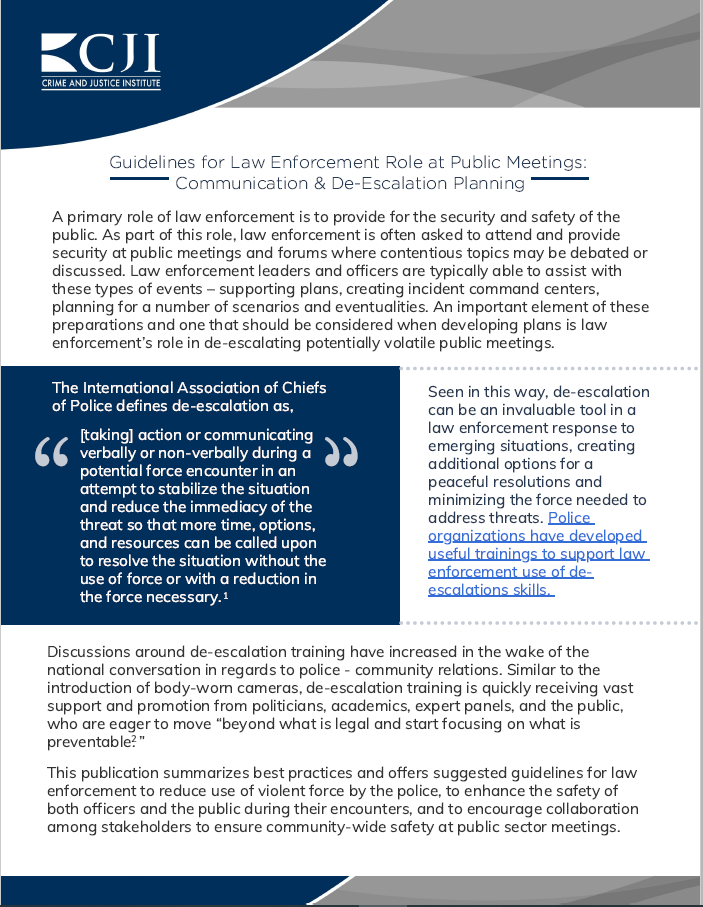
A new collection of resource guides offers elected officials, law enforcement agencies, and members of the public concrete strategies to prepare for potentially contentious public school board meetings and to recognize and de-escalate conflicts.
Throughout the country, conversations focused on school system policies about sensitive topics like curriculum and COVID-19 safety protocols have made local school board meetings flashpoints for aggressive backlash, including threats of violence and intimidation against elected policymakers, teachers, and parents. The new guides, produced by a collaboration between the Bridging Divides Initiative, the Crime and Justice Institute, and DC Peace Team, provide best practices for anticipating potential threats and easy-to-follow steps for defusing tension while protecting public debate and safety.
- Guidelines for Law Enforcement Role at Public Meetings: Communication & De-escalation Planning (CJI)
- Guidelines for De-escalation and Communication around Contentious Meetings for Local Elected Officials (Bridging Divides Initiative)
- Active Bystander Intervention and De-escalation (DC Peace Team)
Each of the three guides includes tailored steps and strategies focused on the specific role of one of the three audiences: bystanders, elected officials, and law enforcement personnel. The guides include steps to take before, during, and after meetings that could turn heated, including monitoring social media for posts indicating a potential for destructive conflict or violence, recognizing the presence of self-described militia groups, practicing de-escalation tactics, developing an emergency response plan, and debriefing after the meeting is over.
The goal of these documents is to provide free, accessible, and informative resources to help community leaders, public safety personnel, and members of the public protect themselves, their communities, and the democratic process from violence and intimidation.